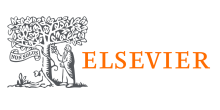A Science|Business hybrid roundtable, organised in partnership with Elsevier (14:00 to 17:00 CET)
While still in its infancy, generative artificial intelligence (GenAI) is showing the potential to fuel scientific discovery and development in many fields and disciplines. Beyond the exciting prospect of unearthing new molecules or materials, it should prove a valuable tool for researchers to track worldwide developments in their field and others – and indeed for policy makers to access and utilise latest evidence, data and analysis on any topic. In parallel, funding bodies and publishers are also starting to realise the benefits of applying GenAI to extrapolate valuable knowledge from peer-reviewed content.
As in other sectors, GenAI’s transformation of science is clearly work in progress. Nevertheless, awareness is also growing around the risks that need to be managed, such as potential inaccuracies in and misinterpretations of scientific results. Questions of safeguarding against bias and ensuring fair evaluation are crucial – not to mention questions of privacy, security, copyright and ownership. Moreover, current and future users will need reassurance that models have been trained on trusted sources of information. Debates are also heating up around the business case for GenAI: where it will create added value for economies and societies, and how that value will be captured and shared.
Thus, as with many disruptive technologies, GenAI requires the research ecosystem to address some fundamental questions about the future. Commission President von der Leyen recently proposed three pillars to ensure the responsible and effective development of AI in Europe moving forward: guardrails, governance and guiding innovation. These three pillars are all interconnected. Guardrails provide the necessary boundaries and protections, governance ensures proper oversight and accountability, and guiding innovation ensures AI development is directed towards beneficial and productive outcomes.
In order to examine these topics further, on November 29 Science|Business will convene a select group of senior figures and experts – from Europe and beyond – to explore a ‘triple helix’ of issues: how GenAI is reshaping the world of science, the future implications for science’s impact on society, and where policy makers should focus their efforts to ensure the best possible outcomes from this transformative technology.





























For further information, please contact Denitsa Nikolova at [email protected]
Partners


 A unique international forum for public research organisations and companies to connect their external engagement with strategic interests around their R&D system.
A unique international forum for public research organisations and companies to connect their external engagement with strategic interests around their R&D system.